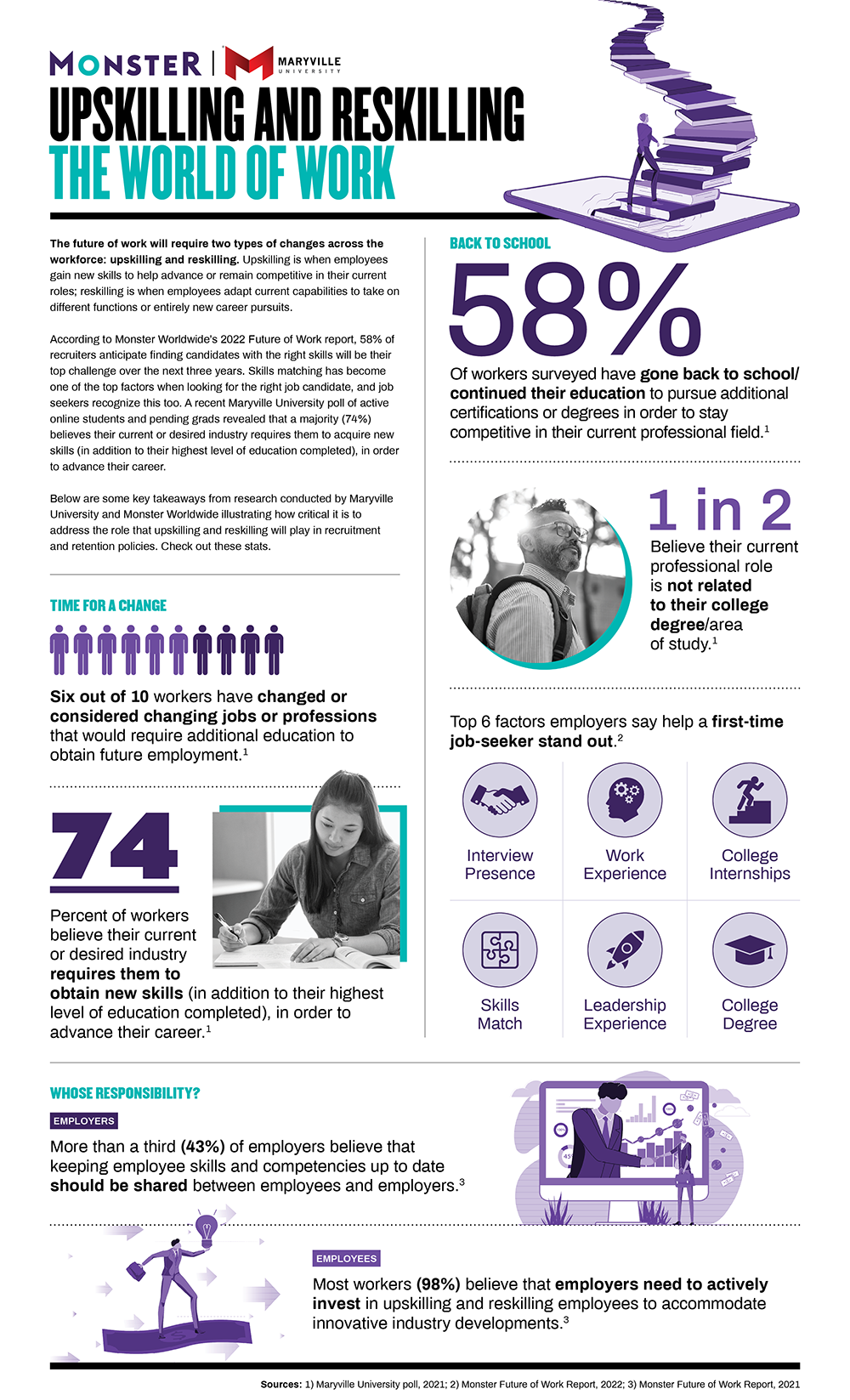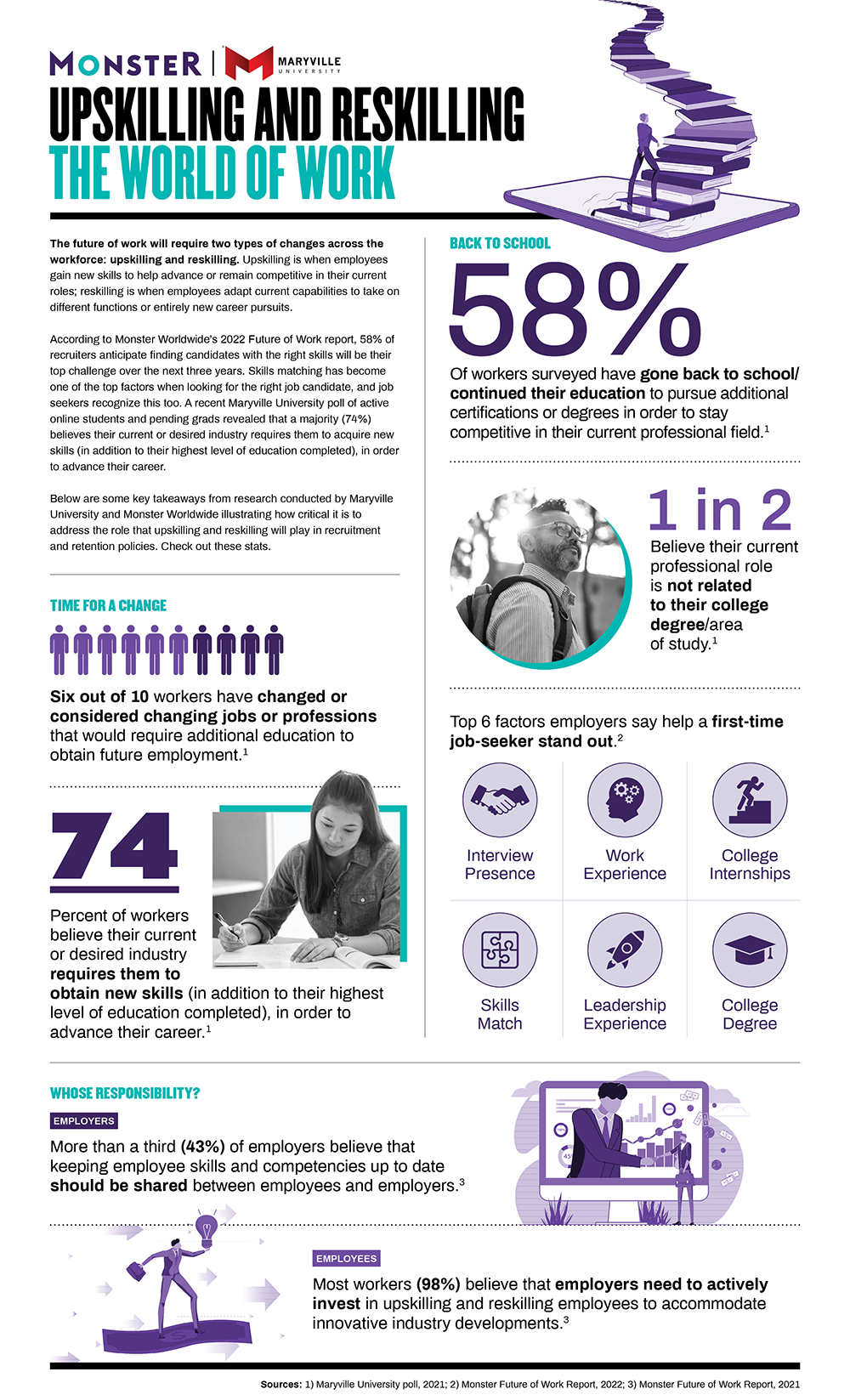Maryville University and Monster Worldwide Reveal New Data on Upskilling and Reskilling Needs In The Workforce

In collaboration with Monster Worldwide, Maryville University is releasing new data from Monster Worldwide’s 2022 Future of Work poll, and a Maryville University poll conducted among active students and pending graduates.
Amid the fast paced and ever-changing work environment, upskilling and reskilling to meet the shifting demands of the professional world is top of mind for both employers and employees alike. New insights from polls conducted by both Monster and Maryville illuminate the massive need for significant skill-based learning options for job seekers and employers.
To learn more, check out the infographic below created by Maryville University and Monster Worldwide.

Upskilling and Reskilling: The World of Work
The future of work will require two types of changes across the workforce: upskilling and reskilling. Upskilling is when employees gain new skills to help advance or remain competitive in their current roles; reskilling is when employees adapt current capabilities to take on different functions or entirely new career pursuits.
According to Monster Worldwide’s 2022 Future of Work report, 58% of recruiters anticipate finding candidates with the right skills will be their top challenge over the next three years. Skills matching has become one of the top factors when looking for the right job candidate, and jobseekers recognize this too. A recent Maryville University poll of active online students and pending grads revealed that a majority (74%) believes their current or desired industry requires them to acquire new skills (in addition to their highest level of education completed), in order to advance their career.
Below are some key takeaways from research conducted by Maryville University and Monster Worldwide illustrating how critical it is to address the role that upskilling and reskilling will play in recruitment and retention policies. Check out these stats.
Time for a Change
- Six out of 10 workers have changed or considered changing jobs or professions that would require additional education to obtain future employment.1
- 74 Percent of workers believe their current or desired industry requires them to obtain new skills (in addition to their highest level of education completed), in order to advance their career.1
Back to School
- 58% of workers surveyed have gone back to school/continued their education to pursue additional certifications or degrees in order to stay competitive in their current professional field.1
- 1 in 2 believe their current professional role is not related to their college degree/area of study.1
- Top 6 factors employers say help a first-time job-seeker stand out.2
- Interview Presence
- Work Experience
- College Internships
- Skills Match
- Leadership Experience
- College Degree
Whose Responsibility?
- Employers: More than a third (43%) of employers believe that keeping employee skills and competencies up to date should be shared between employees and employers.3
- Employees: Most workers (98%) believe that employers need to actively invest in upskilling and reskilling employees to accommodate innovative industry developments.3
Sources
1 Maryville University poll, 2021
2 Monster Future of Work Report, 2022
3 Monster Future of Work Report, 2021

